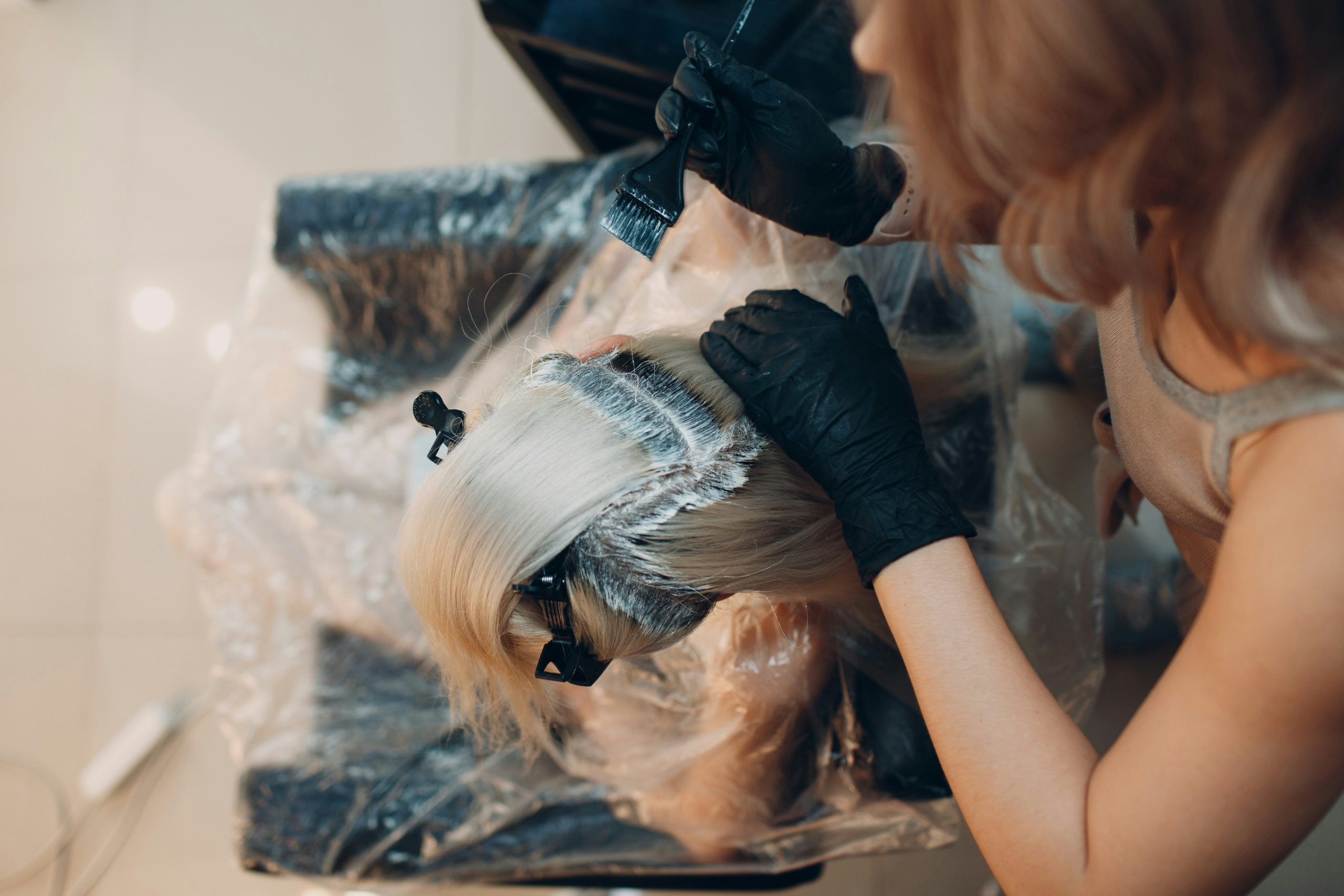Tired of dealing with dry, brittle hair that lacks shine and vitality? Look no further than your kitchen pantry and garden for natural solutions to revive your hair.
Herbal hair masks offer a holistic approach to hair care, harnessing the power of botanical ingredients to nourish, strengthen, and repair damaged strands.
In this guide, we’ll explore the benefits of DIY herbal hair masks, delve into the science behind herbal remedies for hair health, and provide easy-to-follow recipes to help you achieve luscious, hydrated hair naturally.
The Science Behind Herbal Hair Care
For centuries, people have turned to nature for remedies to address various hair concerns, from dryness and breakage to dandruff and hair loss.
Herbal ingredients are rich in vitamins, minerals, and antioxidants that nourish the scalp and hair follicles, promoting healthier, more resilient hair.
Additionally, many herbs possess antimicrobial and anti-inflammatory properties, making them effective at soothing irritated scalps and preventing common scalp conditions.
When used in the best hair masks, herbs can penetrate the hair shaft, delivering essential nutrients and moisture to parched strands.
Unlike commercial hair products that may contain harsh chemicals and synthetic fragrances, DIY herbal hair masks offer a gentle yet potent solution for addressing dry, damaged hair without exposing your hair to potentially harmful ingredients.
Benefits of DIY Herbal Hair Masks
The benefits of DIY herbal hair masks extend beyond hydration and repair. By customizing your hair masks with specific herbs and ingredients, you can target your unique hair concerns and achieve personalized results. Whether you’re dealing with frizz, split ends, or scalp irritation, there’s an herbal hair mask recipe to suit your needs.
Furthermore, DIY herbal hair masks are cost-effective and environmentally friendly, reducing your reliance on store-bought hair products packaged in plastic bottles.
By utilizing natural ingredients that are readily available in your kitchen or garden, you can create effective hair care treatments that are both sustainable and budget-friendly.
Easy DIY Herbal Hair Mask Recipes
1. Moisturizing Avocado and Aloe Vera Hair Mask
- 1 ripe avocado
- 2 tablespoons of fresh aloe vera gel
- 1 tablespoon of coconut oil
Instructions:
- Mash the ripe avocado in a bowl until smooth.
- Add the fresh aloe vera gel and coconut oil to the mashed avocado and mix until well combined.
- Apply the mask to damp hair, focusing on the lengths and ends.
- Leave the mask on for 30 minutes, then rinse thoroughly with lukewarm water.
2. Strengthening Rosemary and Olive Oil Hair Mask
- 2 tablespoons of dried rosemary leaves
- 1/4 cup of olive oil
Instructions:
- In a small saucepan, heat the olive oil over low heat until warm.
- Add the dried rosemary leaves to the warm olive oil and let steep for 30 minutes.
- Strain the infused oil to remove the rosemary leaves.
- Apply the infused oil to damp hair, massaging it into the scalp and through the lengths.
- Leave the mask on for at least one hour, then shampoo and condition as usual.
3. Soothing Chamomile and Honey Hair Mask
- 2 chamomile tea bags
- 2 tablespoons of honey
- 1/4 cup of plain yogurt
Instructions:
- Steep the chamomile tea bags in hot water for 10 minutes, then let cool.
- In a bowl, mix the honey and plain yogurt until smooth.
- Add the cooled chamomile tea to the honey and yogurt mixture and stir well.
- Apply the mask to damp hair, ensuring even coverage from roots to ends.
- Leave the mask on for 20-30 minutes, then rinse thoroughly with cool water.
Conclusion
Say goodbye to dry, damaged hair and hello to silky smooth hair with DIY herbal hair masks. By harnessing the power of nature’s botanicals, you can nourish, strengthen, and revive your hair naturally. Whether you’re looking to moisturize, strengthen, or soothe your strands, there’s an herbal hair mask recipe to suit your needs.
FAQs
Q1: How often should I use herbal hair masks?
It depends on your hair’s condition and needs. Generally, using a herbal hair mask once or twice a week can help maintain healthy, hydrated hair. Adjust the frequency based on your hair’s response and any specific concerns you may have.
Q2: Can I customize herbal hair mask recipes to suit my hair type?
Absolutely! Herbal hair mask recipes can be easily customized by selecting ingredients that cater to your specific hair type and concerns. For example, those with oily hair may benefit from adding astringent herbs like peppermint or lemon balm, while those with dry hair may prefer moisturizing ingredients like avocado or coconut oil.
Q3: Are there any herbs I should avoid using in hair masks?
While many herbs are beneficial for hair health, some may cause irritation or allergic reactions in sensitive individuals. It’s essential to patch test any new herbs or ingredients before applying them to your hair and scalp. Additionally, consult with a healthcare professional if you have any underlying medical conditions or concerns.
Q4: Can I leave herbal hair masks on overnight?
Leaving herbal hair masks on overnight is generally safe, but it may not be necessary for most recipes. Most herbal hair masks can be left on for 20-60 minutes to achieve optimal results. However, if you prefer to leave the mask on overnight, be sure to protect your pillowcase with a towel or wrap your hair in a shower cap to prevent staining.
Q5: Will herbal hair masks strip my hair color?
Herbal hair masks are generally gentle and should not strip hair color when used as directed. However, if you have recently colored your hair or have concerns about color retention, it’s essential to patch test the herbal hair mask on a small section of hair before applying it to your entire head.



